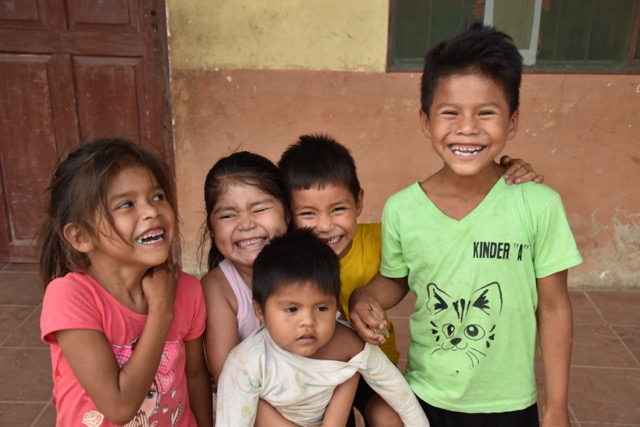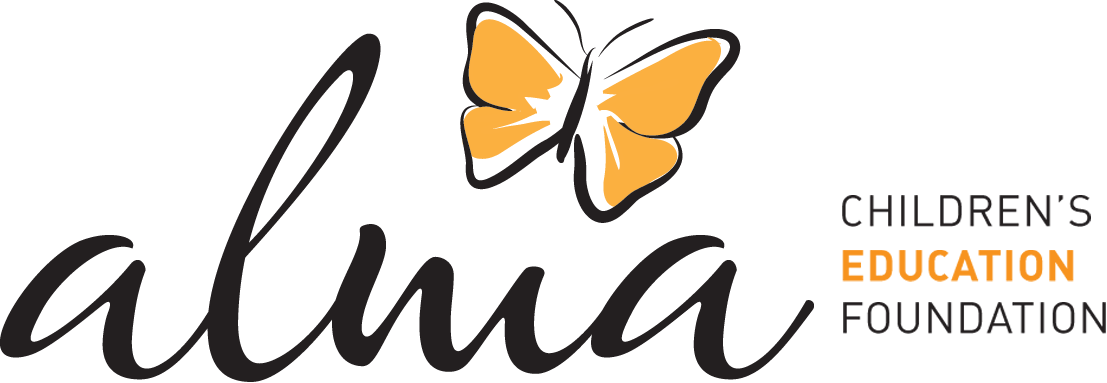
In 2019 Alma began coordinating with the Unidad de Gestion Educativa Local (UGEL) in Quispicanchi, the largest province in the region of Cusco and home to the majority of our community projects in Peru, to begin training state teachers in Alma’s unique pedagogy focused on critical and creative thinking, local culture, harmonious values, and state mandated curriculum. In late 2019 and early 2020 Alma trained all 14 educational technicians for preschool, primary, and secondary school, the Directors of the UGEL, as well as a pilot group of 30 teachers spanning 5 schools (1 preschool, 3 primary schools, and 1 secondary school).
With the onset of the COVID-19 pandemic and the Ministry of Education’s resulting shift to remote learning, the UGEL-Quispicanchi asked Alma to expand our training to all 2,300 state teachers within their jurisdiction. Therefore, over the course of two months, Alma developed and validated with UGEL staff and teacher focus groups three remote learning proposals for preschool, primary school, and secondary schools in the context of the Quispicanchi Province.
After three months of implementation and improving feedback, the UGEL-Quispicanchi noted that the remote teaching strategies developed by Alma improved teachers’ ability to:
- Prepare, implement, and evaluate lesson plans despite obstacles to communication;
- Connect lesson plans, and state curated “Yo aprendo en casa” material, and state mandated curricular goals to students’ daily lives; and
- Include parents in students’ learning.
Nevertheless, while the content and process of Alma’s proposal is being implemented, educational specialists from the UGEL-Quispicanchi observe that an emotionally stable environment conducive to learning is not being curated by teachers or parents, which is only exasperated by the physical and emotional toll of COVID-19. Therefore, as per request from the UGEL-Quispicanchi, Alma aims to create an additional training program for teachers focused on creating emotionally stable environments conducive to meaningful learning. The socio-emotional and psychological conditions for meaningful learning to take place.
The proposed training program considers three spaces necessary for the creation of emotionally healthy environments:
- The Personal: The tone of a person’s interaction with and their effect on an environment begins with their own personal emotional state of well-being and the tools available to him or her to manage and impact it. Therefore, the primary space of focus will be internal, helping teachers become self-coaches to create focus on their emotional socio-emotional and psychological wellbeing within themselves first, allowing them to then in turn empower others (students and parents) with the same tools and competencies be an island of emotional wellbeing which can radiate out externally.
- The Classroom: The teacher sets the tone of the classroom. If the teacher is working from a personal space of emotional wellbeing, he or she will then have the tools to create the norms, vocabulary, habits, and mindsets to nurture a healthy space in the classroom for the students and within the students themselves, and therefore create an environment conducive to meaningful learning. The teacher therefore fulfills the role of mentor-coach who models and instills the capacity for students and parents to self and co-coach.
- The Household: Through the institution established and required by the Ministry of Education called “escuela de padres” (Parents’ school), in which parents meet with teachers 2-3 times per school year to receive instruction and orientation on their role as parents in their children’s education, teachers can invite parents to experience the healthy space nurtured in the classroom and train parents in tools and strategies to become self-coaches and mentors, nurturing emotional wellbeing within themselves and therefore within their households, with the expressed outcome to nurture healthy learning environments both in the classroom and in the household.
The proposed training program considers four areas of focus. For each area of focus, we need to determine which methodologies/strategies/models to use to assure:
- They are useful and relevant to the needs of the teachers within the three above mentioned spaces and
- The strategies are simple and practical enough that teachers can and will implement them in the short-medium term within the three above mentioned spaces.
Focus areas 1, 2, and 3 will be designed for teachers to implement personally before passing learned techniques on to:
- Students: within the classroom through modelled behavior, mentor/mentee relationships, and integration into daily learning and
- Parents: through escuela de padres sessions, modelled behavior, and mentor/mentee relationships.
Focus area 4 will be designed specifically for teachers to help them fulfill additional roles that they must occupy in the community such as social worker, counselor, representative of the state, and community leader.
- Self-coaching and Coaching
- Relationships
- Build and maintain mentor/mentee relationships based on trust and belonging, forgiveness, compassion, gratitude, kindness
- Recognition and auto-regulation of emotions
- Practical strategies and tools to respond to different needs in the community
- Verbal/physical/sexual abuse, substance abuse, grief/loss, abandonment
Expected products of the project:
- 3 Training programs (one for each educational level: preschool, primary, and secondary school) for teachers encompassing the four focus areas in the three spaces
- Manual for teachers detailing strategies and theories covered in training program and how to integrate them into day-to-day learning
- Manual for parents detailing reflective and proactive activities geared towards emotional wellbeing covered in Parents’ school sessions and how to integrate them into day-to-day life
- Evaluative tools for teachers and administrators to monitor and measure impact of socio-emotional and psychological well-being on students’ learning.
Expected beneficiaries:
- 16 Administrators from the UGEL- Quispicanchi
- 2,300 teachers from the UGEL- Quispicanchi
- 35,000 students from the Quispicanchi Province
- 20,000 parents from the Quispicanchi Province (estimated)
Draft project timeline:
- September and October 2020: Proposal research and development
- November 2020 – focus group validations
- December 2020 – Pilot group training
- January 2021 – Pilot evaluation
- February 2021 – Adjustments based on Pilot evaluation
- March 2021 – December 2021: First year implementation in Quispicanchi Province
